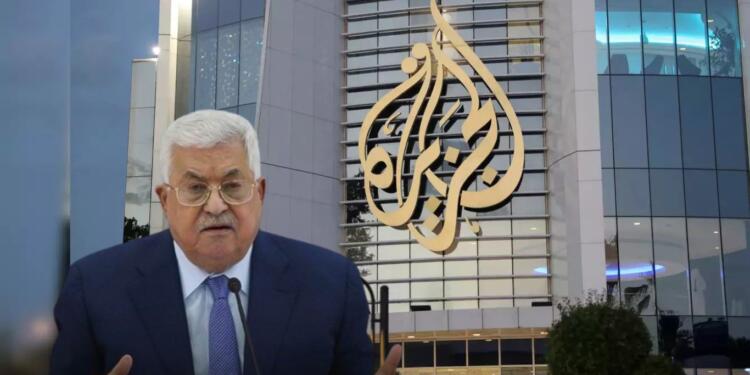Al Jazeera, notorious for furthering Qatari propaganda and whitewashing Islamist crimes globally, has come to the spotlight again for its biased reporting. Its record of biased reporting is well-known.
Just this Wednesday, the Palestinian Authority (PA) temporarily suspended Al Jazeera’s operations in the West Bank over what it described as ‘inciting material.’
According to the official Palestinian news agency Wafa, a ministerial committee cited the broadcaster’s ‘deceiving reports’ that they claimed incited a move following Fatah’s recent accusations against the network for sowing division.
Palestinian Authority is cracking down on the extremist Palestinian militants in the West Bank in order to keep themselves away from violence and the collateral damage of the Isarel-Hamas war. This will give the PA legitimacy and security to the citizens. But Al Jazeera started broadcasting this crackdown inhumanely and accused the PA of acting on behalf of ‘Zionists’ (Al Jazeera always uses this derogatory term for Israel). Hence, the PA understood the narrative and banned the organisation.
In Israel, Al Jazeera was accused of biased reporting against the state and promoting narratives sympathetic to the terrorist organisation Hamas. This led to a move to shut down its operations in 2017. In September 2024, Israeli forces issued Al Jazeera with a military order to shut down operations after they raided the outlet’s bureau in the West Bank city of Ramallah – where the PA is based.
Al Jazeera has long been accused of promoting a political agenda, often aligned with the interests of its Qatari owners. The media organisation has been seen broadcasting the idea of radical Islam and is also accused of airing Osama Bin Laden’s video defending the 9/11 attack after the attack happened.
Also Read: The paragons of ‘truth’, Al Jazeera finds its journalists on a terror list
These allegations have led to bans and restrictions in several countries at different points in time. Let’s explore some of these incidents.
In 2012, Al Jazeera faced criticism from Bangladeshi human rights activists and relatives of those killed in the 1971 Bangladesh Liberation War. The news channel is often accused of downplaying the 1971 Bangladesh genocide, in which Islamist militia, especially the Jamt-e-Islami, helped the Pakistan Army in killing and raping Bengalis who sought independence from Pakistan.
In 2017, during the Gulf diplomatic crisis, even Mulsim Arab nation banned Al Jazeera. Egypt, Saudi Arabia, Bahrain, and the UAE banned Al Jazeera, accusing it of spreading extremist ideologies and inciting unrest. If Muslim Arab nations are pointing out ‘extremism’, Just imagine the intensity of the extremism the Al Jazeera shows.
Even in India, the government suspended Al Jazeera’s broadcasting license in 2015 for repeatedly displaying incorrect maps of India in order to take the side of the Muslim Nation Pakistan. This raised questions about the network’s editorial standards and motives.
Just yesterday, the Palestinian Liberation Organization (PLO), which is thought to be aligned with the Al Jazeera ideology of hate and biasedness, banned Al Jazeera from operating in the West Bank, citing its divisive and biased reporting as a destabilizing force in the region.
It is very clear that Al Jazeera’s editorial policies are heavily influenced by Qatar’s foreign policy objectives, using the platform to amplify specific narratives, especially radical and extreme Islamic ideologies, while suppressing different and true views.
Al Jazeera’s reporting lacks objectivity and sensitivity, prioritizing sensationalism and selective storytelling.
While every news organization has its biases, the extent to which Al Jazeera’s reporting aligns with political agendas raises serious ethical concerns. Is it journalism or propaganda?
As consumers of news, it’s our responsibility to question the sources of information and hold media organizations accountable. Al Jazeera’s history of bans and accusations of bias is a reminder that no news outlet is beyond scrutiny.

























